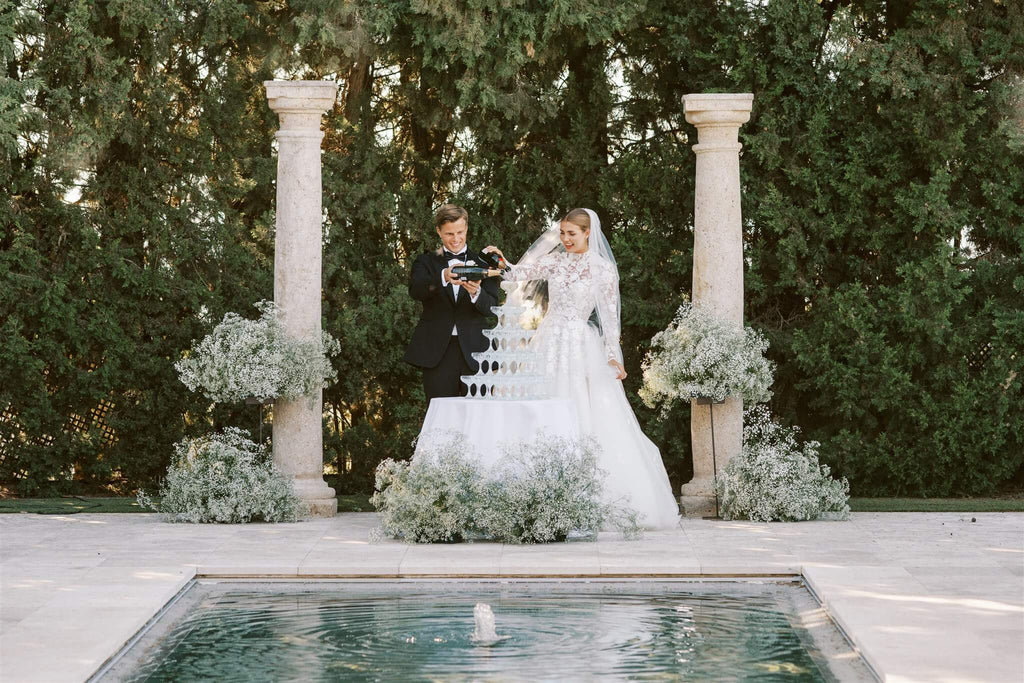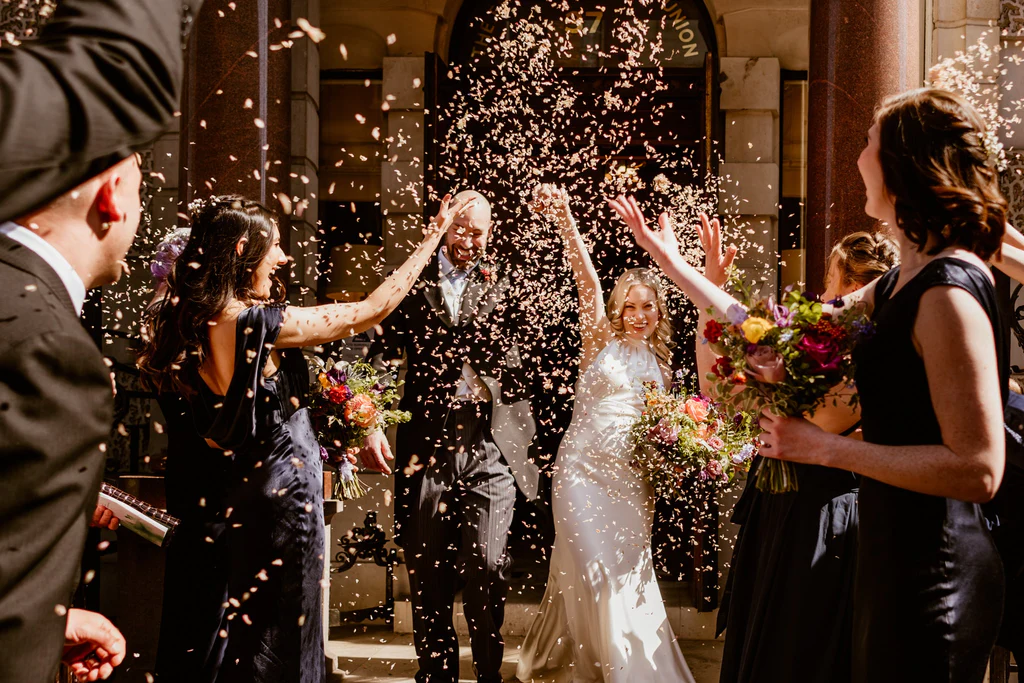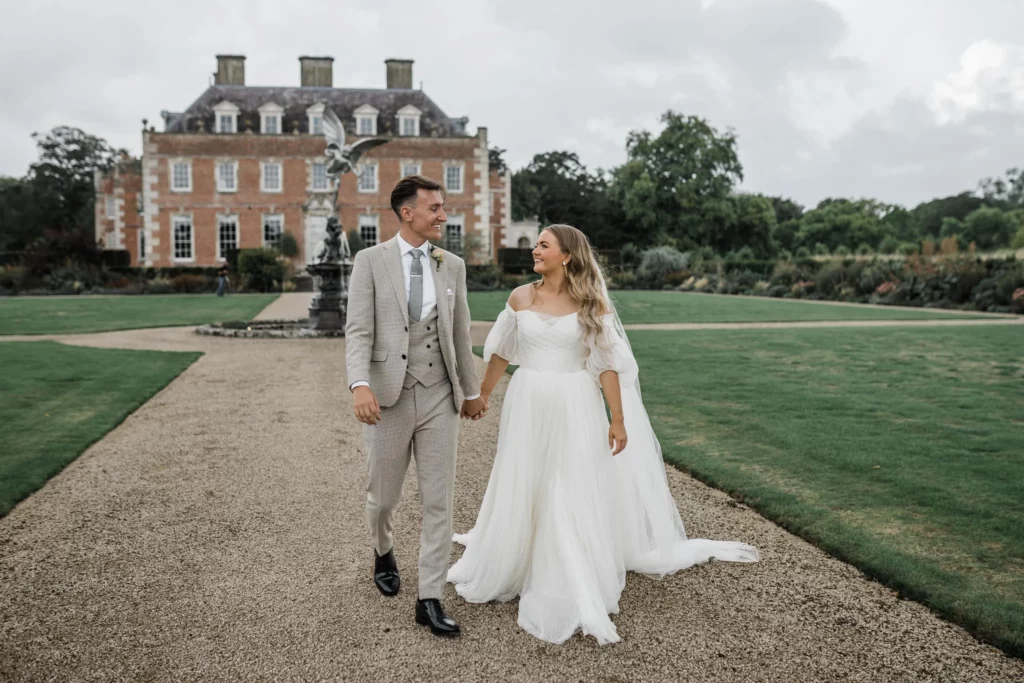
Planning a wedding is a joyous occasion, but let’s be honest – it also comes with a price tag. Crafting a wedding budget is possibly the least romantic part of the process, but it’s a non-negotiable. A clear and well-organised budget will set the stage for a financially savvy and stress-free celebration.
Recent Posts
Securing your event suppliers is one of the most exciting moments in planning your upcoming celebrations, but the choice can be overwhelming. If you’re struggling to decide, look at our list of the world’s top-rated event Vendors & Venues.
Wedding on the Budget
Step 1: Get Real About Your Numbers
Take stock of your finances: Communicate openly and honestly as a couple. Discuss your income, current savings, and any existing debt. Determine a realistic amount you can contribute individually to the wedding and if you expect financial support from family or friends. Remember, your contributions should be the foundation of your budget.
Get a sense of the going rate: Research what weddings typically cost in your location. Websites and wedding planning resources can give you a ballpark figure. Remember that these are just averages; your wedding could cost more or less depending on your specific choices and preferences.
Step 2: Prioritise Your Must-Haves
Every couple has different priorities for their big day. Discuss your non-negotiables as you envision your special celebration. Ask yourselves:
The Guest List: Intimate ceremony and reception with close family and friends, or a larger celebration with extended family and acquaintances? This will significantly impact your overall costs.
The Vibe: Formal and traditional, rustic and relaxed, a quirky and unconventional theme – the look and feel of your wedding should reflect your and your partner’s personalities.
The Food and Drink: Plated sit-down dinner vs. a buffet or food stations? Open bar with a variety of beverages or a limited selection? Consider your preferences and what would best suit your guests.
The Extras: Live band, professional photographer, videographer, unique entertainment like a photo booth or caricature artist – additional elements that can enhance your event but come with associated costs. Decide where you are willing to splurge and where you can find more budget-friendly alternatives.
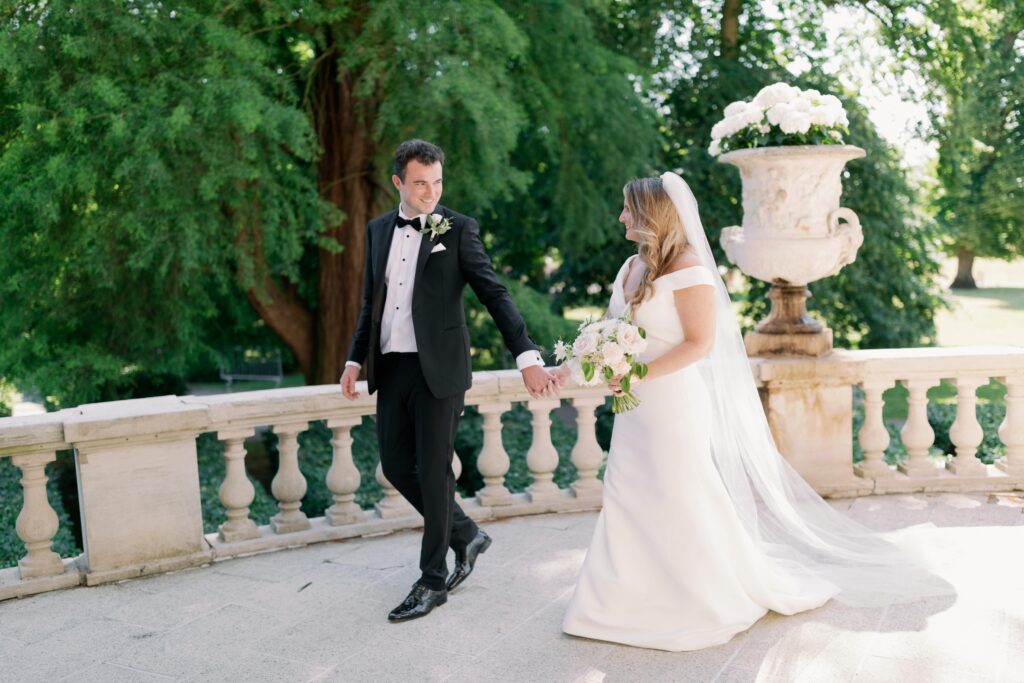
Step 3: Break it down: Wedding on a budget
Here’s a breakdown of typical wedding budget allocations as a starting point. Remember, these are suggestions, and you should adjust them to reflect your priorities:
Venue & Catering (40%): This is often the most significant expense. Consider alternative venues like gardens, historical sites, or restaurants with event spaces. Catering costs can vary greatly depending on the style of service (plated vs. buffet), menu choices, and beverage options.
Photography & Videography (15%): Capturing precious memories is important, but there are ways to manage these costs. Consider the experience level and package options offered by different photographers and videographers.
Attire & Beauty (5%): This includes your wedding attire, alterations, hair and makeup for both partners and potentially attire for your wedding party. Explore options like pre-owned wedding dresses, consignment shops, or tailoring existing garments to save.
Music/Entertainment (10%): This could include a DJ, live band, or other forms of entertainment. Explore options like hiring a smaller band or musician, or consider having a playlist for part of the event.
Flowers (10%): Flowers can be a beautiful addition to your wedding but also very costly. Consider using seasonal flowers, making smaller arrangements, or incorporating DIY elements.
Favours & Gifts (2%): Wedding favours for guests are a thoughtful gesture, but they are not essential. Consider small, personalised gifts or donations to charity in your guests’ names as alternatives.
Transportation (3%): This could include transportation for you and your partner, the wedding party, or even guests if necessary. Consider carpooling, using a ride-sharing service, or renting a shuttle if needed.
Stationery (3%): This includes save-the-dates, wedding invitations, thank-you cards, and other printed materials. Explore online options or consider designing and printing your invitations for a more personal touch.
Cake (2%): You can find beautiful and delicious wedding cakes at various price points. Explore options from local bakeries and grocery stores, or even consider cupcakes or alternative dessert options.
Décor (10%): Decorations can set the mood for your wedding, but they don’t have to be extravagant. Get creative! Use DIY elements, borrow from friends and family, or rent decorations instead of buying them.
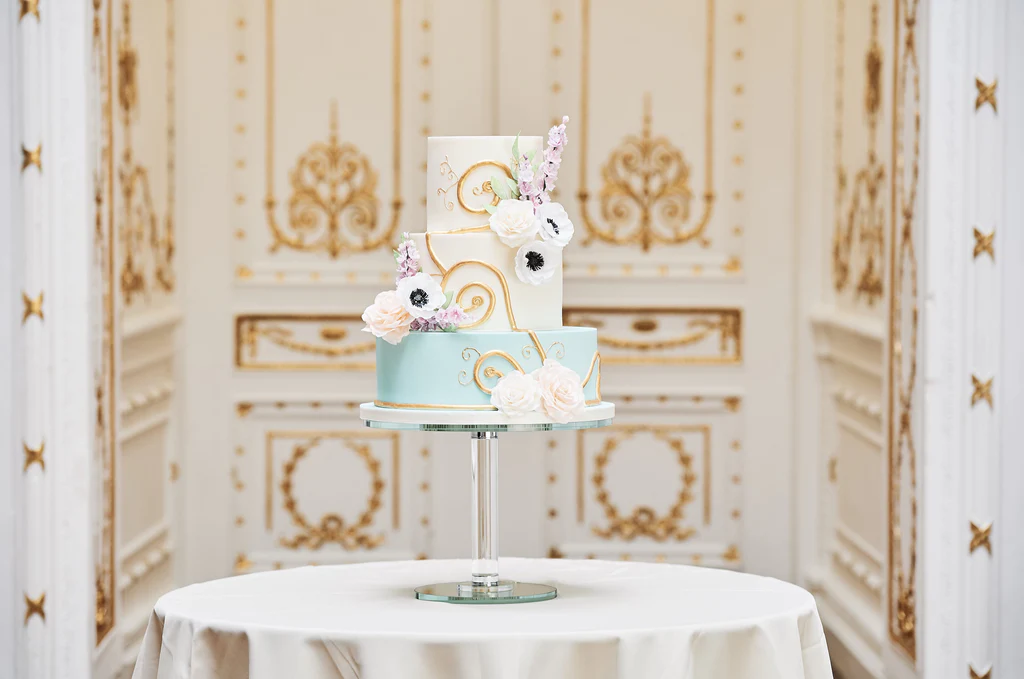
Step 4: The Unexpected and Essential
Contingency Fund (5-10%): Weddings rarely go exactly according to plan, so set aside a buffer to handle unexpected costs. This could be anything from a last-minute vendor expense to covering the cost of replacing a broken cake.
Tips and Gratuities (10-15%): Factor in tips and gratuities for vendors who provide services on your wedding day. This could include servers, bartenders, hairstylists, makeup artists, and the officiant. It’s important to show your appreciation for their hard work.
Taxes and Service Fees (10%): Don’t forget to factor in taxes and service fees associated with various vendors and services. These can add up quickly, so inquire about them upfront and include them in your budget.
Wedding Insurance (Optional): While not essential, wedding insurance can provide peace of mind in case of unforeseen circumstances like illness, weather emergencies, or venue cancellations.
Marriage Licence: This is a legal requirement to get married. Research the cost of obtaining a marriage licence in your area and factor it into your budget.
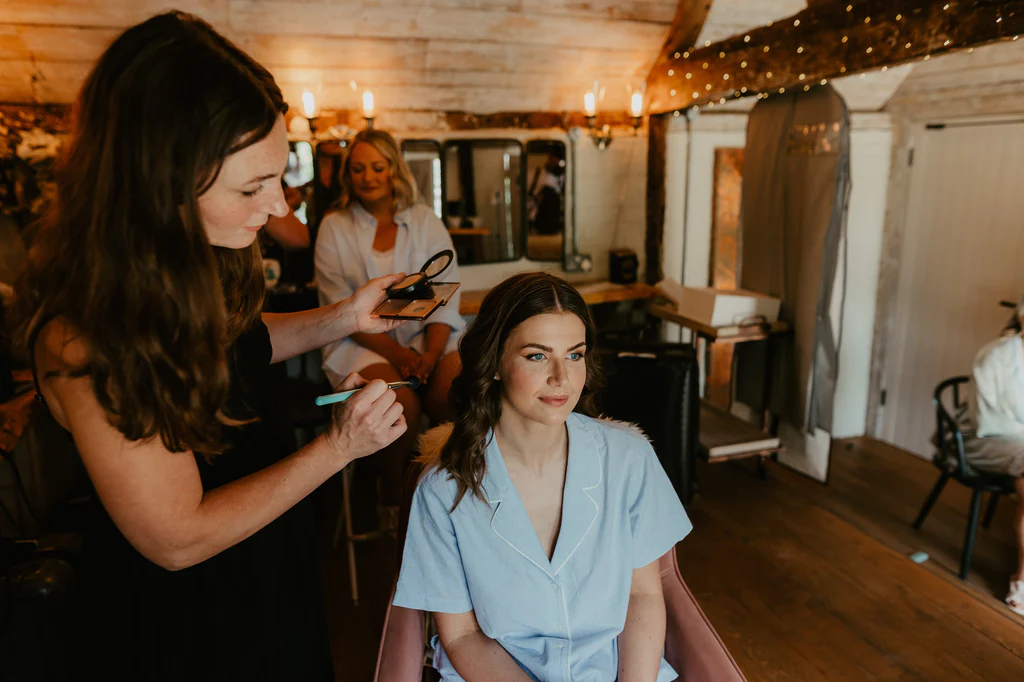
Step 5: Track Everything, Stay Flexible
Wedding Spreadsheet: Create a detailed spreadsheet to track your expenses. Include categories for each aspect of your wedding, list vendors, estimated and actual costs, and payment deadlines. Update it regularly to stay on top of your finances. Download our FREE Wedding Budget spreadsheet.
Re-evaluate Regularly: As you plan your wedding, costs and priorities may change. Be prepared to adjust your budget as needed throughout the process. The key is to stay within your financial means while creating a celebration that reflects your unique love story.

Tips for All Couples:
Talk Openly: Be honest and transparent about your finances with your partner. Discuss your financial goals and expectations openly throughout the wedding planning process.
Ask for Help: Don’t be shy about negotiating prices with vendors or asking for discounts. Remember, many vendors are willing to work with you within reason.
Get Creative: There are many ways to save money on your wedding without sacrificing the quality or enjoyment of the day. Consider DIY elements, choosing a less popular day of the week or off-season for the wedding, or exploring alternative venues and vendors.
Prioritise Experiences: Invest in what truly matters to you and your guests. Whether it’s hiring a fantastic band for dancing, having a delicious catered meal, or creating a fun photo booth experience, focus on elements that will create lasting memories.
Don’t Compare: Remember, your wedding is a celebration of your love and doesn’t need to be the same as anyone else’s. Focus on what makes your wedding unique and special to you as a couple.
Remember, a well-crafted budget is a tool for empowerment, not restriction. By following these steps and adapting them to your unique needs and preferences, you can plan a beautiful and meaningful wedding celebration that stays within your financial means and sets the stage for a happy and secure future together.
Start your wedding planning journey with our easy-to-use FREE Wedding Budget spreadsheet.
This helpful tool will help you:
- Track your expenses: Easily record and categorise all your wedding costs.
- Stay on track: Monitor your progress towards your financial goals.
- Plan with confidence: Make informed decisions about your wedding budget.
Frequently Asked Questions
How do I create a wedding budget?
You can start by discussing your financial situation and expectations with your partner. Research average costs in your area and then prioritise what’s most important to you both. Allocate percentages of your total budget to different categories like venue, catering, attire, etc. Use a spreadsheet to track expenses and stay organised.
What are the biggest wedding expenses?
Venue hire and catering typically claim the largest chunk of your budget, often accounting for around 40%. Other significant costs include photography, videography, attire, beauty, and entertainment.
How can I save money on my wedding?
There are numerous ways to be budget-conscious! Consider alternative venues like gardens, restaurants, or historical sites. Explore DIY elements for decorations or favours. Be flexible with your date – choosing an off-season or less popular day of the week can significantly reduce costs. Negotiate with vendors, explore package deals, and prioritise experiences over unnecessary extras.
What should I include in my wedding budget?
Don’t forget anything! Include the venue and catering, attire and beauty services, photography and videography, flowers and décor, music and entertainment, cake and other desserts, invitations and stationery, transportation, marriage licence, tips for vendors, taxes and service fees, and a contingency fund for unexpected costs.
What if my partner and I have different financial expectations?
Honest and open communication is key. Discuss your financial situations, goals, and priorities openly. Be willing to compromise and find creative solutions for both of you. Remember, your wedding should be a celebration of your love, not a financial burden.
How can I avoid wedding budget stress?
Set realistic expectations from the start and be honest about your financial limitations. Prioritise experiences that matter most to you and your guests. Communicate openly with your partner and delegate tasks if needed. Don’t be afraid to ask for help from friends, family, or professionals. Remember, a beautiful wedding is achievable with some planning and creativity, even on a budget!
Disclosure: We sometimes use affiliate links in our content. This won’t cost you anything, but it helps us offset the costs of paying our writing team. Thanks for your support!



